- Wednesday, 14 January 2026
Economists suggest for realistic, implementable budget
Kathmandu, May 22: Economists have emphasised on the need to bring an implementable and realistic budget rather than a large one in order to accelerate the sluggish economic activities now.
They said that in order to overcome the existing challenges in the national economy, the budget should focus on revitalising economic activities, increasing the ability to spend the budget, increasing the confidence of the private sector and augmenting production and demand.
The government is actively preparing the budget for the fiscal year 2024/25 to unveil it on May 28 in the parliament.
The government presented the policies and programmes for the next fiscal year 2024/25 to the parliament on last Tuesday.
Economist Dr. Chandra Mani Adhikari stressed on the need of introducing budget targeting to revive the current stagnant economy through effective policies and programmes and proper budget allocation.
“Even though the external sector of the economy has improved, the internal economy is slow. As the country cannot achieve sustainable development unless the internal economy is promoted, the government should come up with a budget to accelerate economic activities,” he said.
The confidence of the private sector is weak and the investment has not increased, he said and added that the government should focus on boosting their confidence by addressing their problems through the fiscal and monetary policies.
“As there is a problem in the cooperative and microfinance sector, the confidence in the financial system is weak, so it is necessary to revive confidence in the financial system. For that, the government should focus on regenerating the confidence by adopting appropriate policies,” he said.
As the microfinance and cooperatives have been contributing to make the payment system effective, but when problems arose in these sectors, there surfaced problems in the payment system, said Dr. Adhikari.
Another economist Keshab Acharya said that the trend of bringing distribution-oriented large-scale budgets should be stopped and a realistic budget should be presented from now onwards.
He urged the government to focus on enhancing budget spending capacities of the government bodies as there would be no improve in capital expenditure from the existing tendency of the government apparatus.
“The expected economic growth cannot be achieved unless the capital budget expenditure is increased, so the government should adopt measures to increase the expenditure, especially capital budget, through the budget and minimize the recurrent expenditure,” he said.
He added that the current government should allocate the budget by prioritizing projects that contribute to national needs and economy.
Dipendra Bahadur Kshetry, former vice-chairman of the National Planning Commission and former governor of Nepal Rastra Bank, said that the government should bring the budget based on the policies and programmes and the 16th periodic plan.
“In the past, when policies and programmes came from one side and the budget from the other, there was a situation where the budget was not spent according to the target. Therefore, the government should end the past trend and bring a budget to meet the goals set in the policies and programmes,” he said.
Stating that the country’s economic growth was slow, Kshetry said that the government should announce a special programme for the promotion of domestic and small industries that would support sustainable economic growth
Dr. Adhikari said that the government should come up with a policy to solve the problems of cooperatives and improve the payment system by bringing incentive packages for well-run cooperatives.
In the meantime, there is a need of effective incentives provision in agriculture sector to increase production and overcome food crisis.
“When the country will be self-reliant in agriculture, there will be no risk of food crisis. We see that every country does not export until and unless they maintain security food for their own country. So, we have to increase the agricultural production,” he said.
To increase agricultural production, the government should introduce production-based incentives to encourage farmers to increase production.
Similarly, through the budget, the government should introduce special programmes in the country’s potential investment sector, such as hydropower, tourism and manufacturing industries as well.
“The priorities of the budget should be self-reliant economy and employment generation. There is no alternative but to allocate required budget for production and productivity to check growing imports and improving supply of domestic products by bringing back the national economy on track,” said Kshetry.
The government should not include pipeline projects and less important ones in the budget which supports to overcome the shortfall of budget while implementing the present priority projects, he said.
Budget size should be around Rs. 1,700 billion
Talking about the size of the budget, Dr. Adhikari said that the government should be sincere to introduce implementable and realistic budget instead of ambitious one.
“Analysing the resources, especially revenue, which is a major source of government’s income, it will be appropriate and realistic to introduce budget of around Rs. 1,700 billion.
If the government brings a budget larger than that, it will not be implemented properly and recurrent expenses increased that ultimately puts pressure on inflation,” he said.
The National Planning Commission has fixed the budget ceiling at Rs. 1,800 billion for the fiscal year 2024/25.
The budget size should be determined based on the resources, implementation capacity and economy instead of demand alone. If the budget is introduced based on the demand proposed by the ministries, the size of budget would be more than Rs. 2,500 billion, he said.
Economist Acharya said, “The government has been reducing the size of the budget during the mid-term review as the budget has not been spent for the last few years, so the government should bring a budget that is not ambitious but effective in terms of implementation.”
While doing half-yearly review in February, the Ministry of Finance reduced the size of the budget for the current fiscal year by about Rs. 221 billion to Rs. 1,530.26 billion. It is 87.38 per cent of the initially allocated budget.
The government had presented a budget of Rs. 1,751.31 billion for the current fiscal year 2023/24 on May 29, 2023.
“Considering the government performance in terms of budget implementation, in my view, the budget for the upcoming fiscal year 2024/25 should not exceed Rs. 1,700 billion,” he said.
“In a country like Nepal, which is about to upgrade to the level of a developing country status, there is no problem when the size of the budget is slightly more than the country’s resources. It is not bad to increase the size of the budget by expecting support and loans from the international community. But the budget should be implemented and the capital expenditure should be higher, said Kshetry.
He said that the ratio of budget allocation under the recurrent expenditure is gradually increasing than under the capital budget heading.
He said that the government should focus on increasing the capital budget expenditure along with the management of the spending mechanism through the budget.
Stating that the budget allocation in the health and education sector was high but the achievement from the allocation in these sectors could not be as desired, he said that the government should focus on proper implementation of programmes in these sectors.



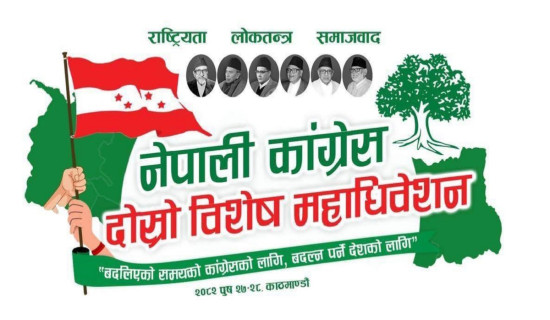
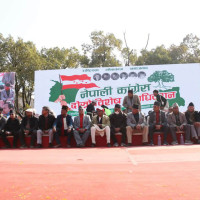
-square-thumb.jpg)


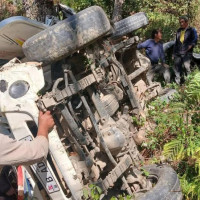
-original-thumb.jpg)
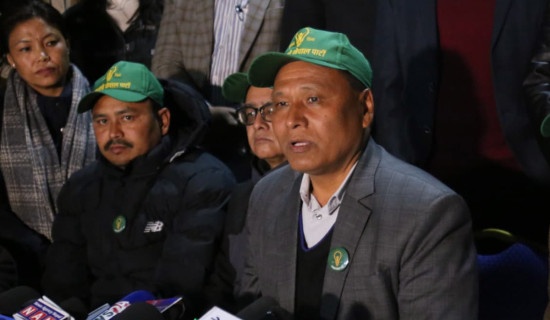
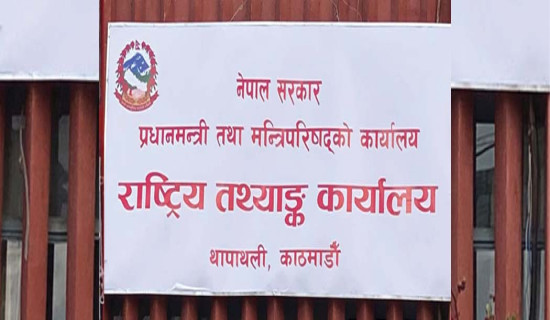

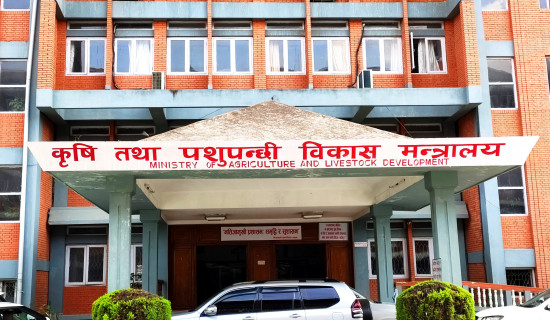

-(1)-original-thumb.jpg)
